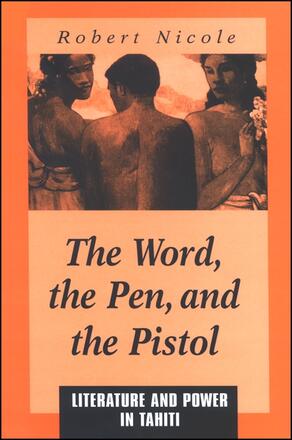
The Word Pen, and the Pistol
Literature and Power in Tahiti
Alternative formats available from:
This postcolonial study explores the Western myth of Tahiti as a paradise, as well as the complex and diverse ways the Maohi people have responded to this myth.
Description
The Word, The Pen, and the Pistol explores the relationships between history, power, knowledge, and certain cultural productions such as literature in colonial and postcolonial contexts. Borrowing from the theoretical works of Michel Foucault and Edward Said, the book reveals in the French colonial territory of French Polynesia the complicit relationship between imperialism and colonial texts, between the image of Tahiti as "paradise on earth" and other instruments of management, and between discourses such as the "Noble Savage" and various technologies of discipline and ordering. In particular, the book discusses the role that such men as Buffon, Rousseau, Bouganville, Loti, Gauguin, and Gobineau and institutions such as science, phrenology, scholarship, racism, travel literature, education, and tourism played in creating, supporting, authorizing, disseminating and enforcing certain images of the Polynesian. The book simultaneously details the complex and diverse responses of Maohi people to these romanticized Western discourses and reconstructs the spaces used by them to inscribe their resistance.
Robert Nicole is Lecturer in History/Politics at the University of the South Pacific, Suva, Fiji.
Reviews
"Those who have thought of Tahiti and other Pacific places as vacation paradises will be forced by Nicole's book into introspection about the nature, genealogies, and tenacity of Pacific Island fantasies and desires. That is, this book will make it impossible to look at Tahiti the same way, and will be useful in forcing the reader to rethink Pacific discourses in other contexts. Nicole's work is invaluable in keeping its gaze squarely on the mechanisms of colonialism from the point of contact to the present. He shows in as concrete a way as possible how Tahiti has been made into an abstraction, or a degrading sexist and racist tourist fantasy." — Paul Lyons, University of Hawaii at Manoa